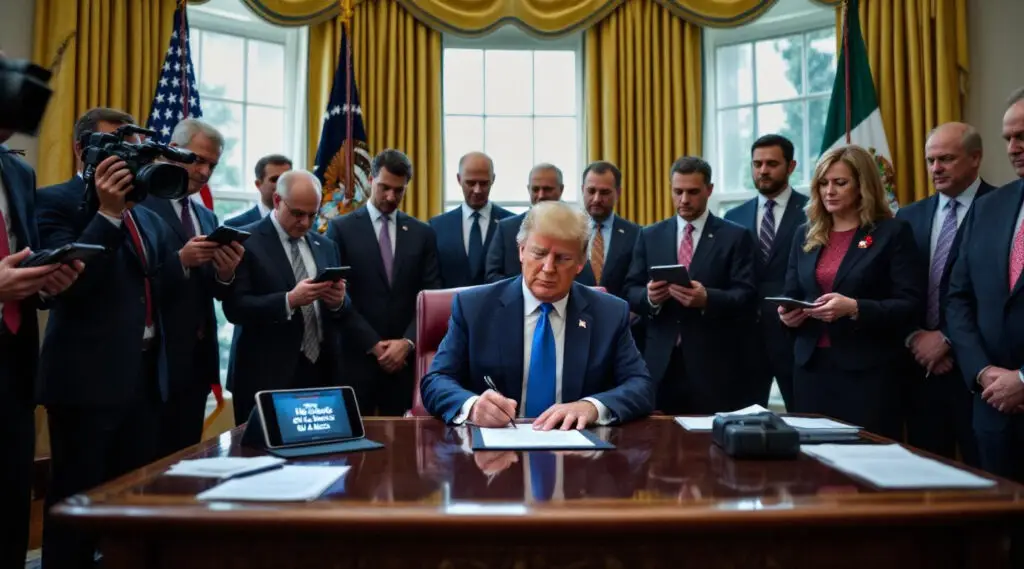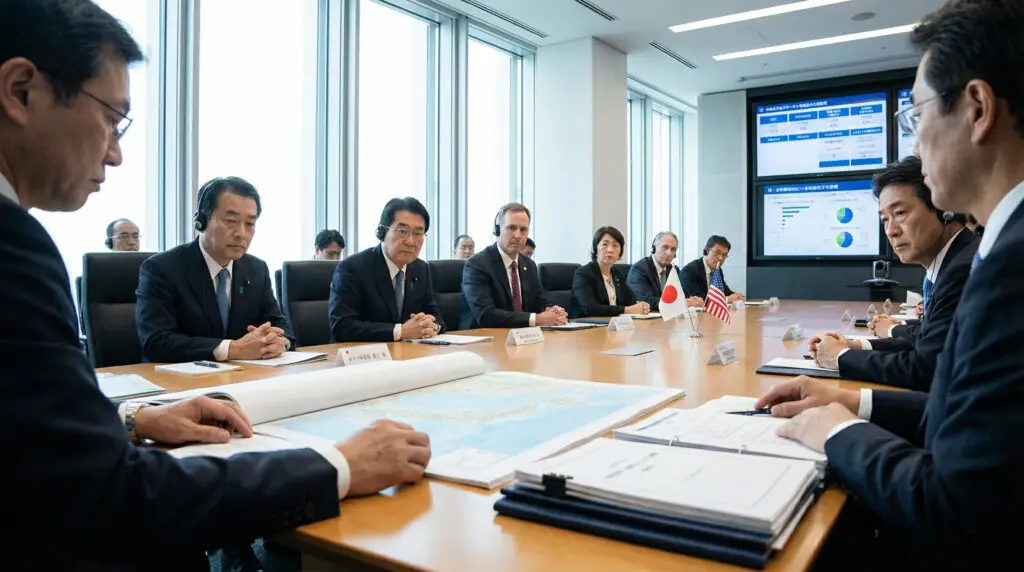Trump Enacts 30% Tariffs on EU and Mexico Imports
President Donald Trump has announced a sweeping 30% tariff on all imports from the European Union and Mexico, effective August 1. The announcement, made through his Truth Social account, includes formal letters to EU President Ursula von der Leyen and Mexican President Claudia Sheinbaum. Trump justified the tariffs as necessary measures to correct trade imbalances and address ongoing border security issues.
Trump cited a significant trade deficit with the EU and insufficient action by Mexico to combat drug cartels as primary reasons for the levies. The move marks one of the most aggressive trade policy steps of his current term, aimed at pressuring foreign governments into renegotiating deals more favorable to the U.S.
EU and Mexico Represent Key U.S. Trade Partners
Both the European Union and Mexico are critical to U.S. trade. The EU accounted for over $600 billion in U.S. imports last year, making it the country’s largest trade partner as a bloc. Mexico, meanwhile, was the single largest source of U.S. imports in 2024, totaling over $500 billion.
This dramatic tariff hike threatens to disrupt supply chains across multiple sectors, including automotive, pharmaceuticals, and agriculture. Economists warn that higher tariffs could ultimately result in increased costs for American consumers and businesses.
President Trump Highlights Trade Deficits and Border Security
In his letter to the EU, Trump pointed to persistent trade deficits as justification for the tariff decision. He characterized the economic relationship as imbalanced and unsustainable. In his letter to Mexico, Trump acknowledged the country’s cooperation on border security but criticized it for not doing enough to combat narco-trafficking cartels.
“Mexico still has not stopped the cartels who are trying to turn all of North America into a narco-trafficking playground. Obviously, I cannot let that happen,” Trump wrote.
These messages were part of a broader communications campaign launched this week, signaling a renewed commitment to trade protectionism under his administration.
EU and Mexican Leaders Push Back Against Tariff Move
European Commission President Ursula von der Leyen strongly opposed the tariffs, warning that they would harm consumers, businesses, and healthcare systems on both sides of the Atlantic. She confirmed that the EU remains open to negotiations but vowed to defend EU interests through proportional countermeasures if necessary.
Mexican President Claudia Sheinbaum took a more measured tone, expressing confidence that ongoing negotiations could yield a positive outcome. She indicated that her administration had dealt with similar challenges previously and remained optimistic about securing a revised trade deal with the U.S.
Broader Global Trade Implications Loom
Trump’s latest tariff moves are not limited to the EU and Mexico. This week, he also announced plans to implement 50% tariffs on imports from Brazil and 35% on those from Canada. These measures represent a significant escalation in trade tensions as the administration doubles down on its America-first economic agenda.
Analysts suggest the broader impact could include retaliatory tariffs, disrupted global trade flows, and increased inflationary pressure. The global business community is closely monitoring how affected countries and trading blocs will respond.
Markets Respond Cautiously to Tariff Announcement
While financial markets initially dipped following the tariff announcement, the response has been relatively muted compared to previous trade wars. Investors are factoring in the possibility that the tariffs may still be adjusted or negotiated down before their August implementation date.
Nevertheless, sectors reliant on EU and Mexican imports—such as automotive, manufacturing, and consumer electronics—are bracing for potential cost increases and supply chain bottlenecks. Industry groups are urging the administration to return to the negotiating table before the tariffs take effect.
Political and Economic Fallout for Trump Administration
The decision to levy these new tariffs has drawn sharp criticism from both domestic and international stakeholders. While Trump’s supporters applaud his tough stance on trade, critics argue the policy could backfire economically and politically.
With the 2024 election still fresh in public memory, Trump’s trade policies remain a central part of his legacy. Whether these new tariffs lead to better deals or spark retaliation will play a significant role in shaping his economic record.
What Comes Next in U.S. Trade Policy
As the August 1 deadline approaches, diplomatic discussions are expected to intensify. Both the EU and Mexico have signaled a willingness to negotiate, though their positions remain firm.
If no resolution is reached, the implementation of these tariffs could mark the start of a broader trade war, with ripple effects felt across the global economy. The coming weeks will test whether the Trump administration’s aggressive tariff strategy will achieve its goals—or deepen existing trade divides.























